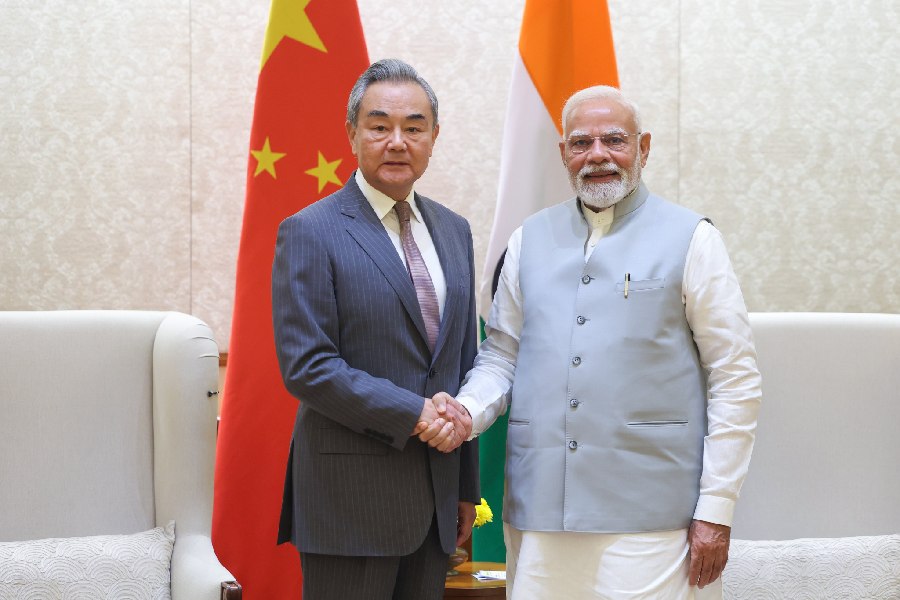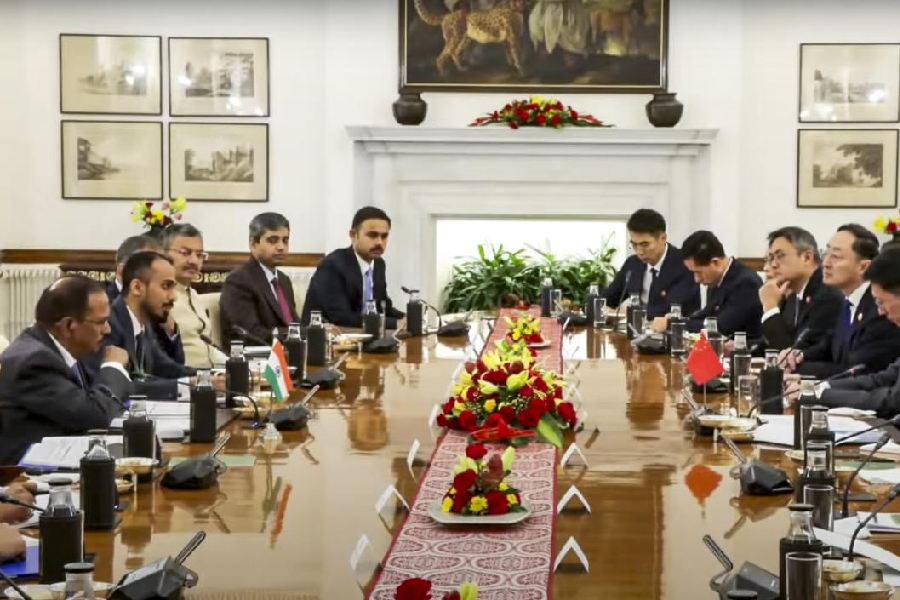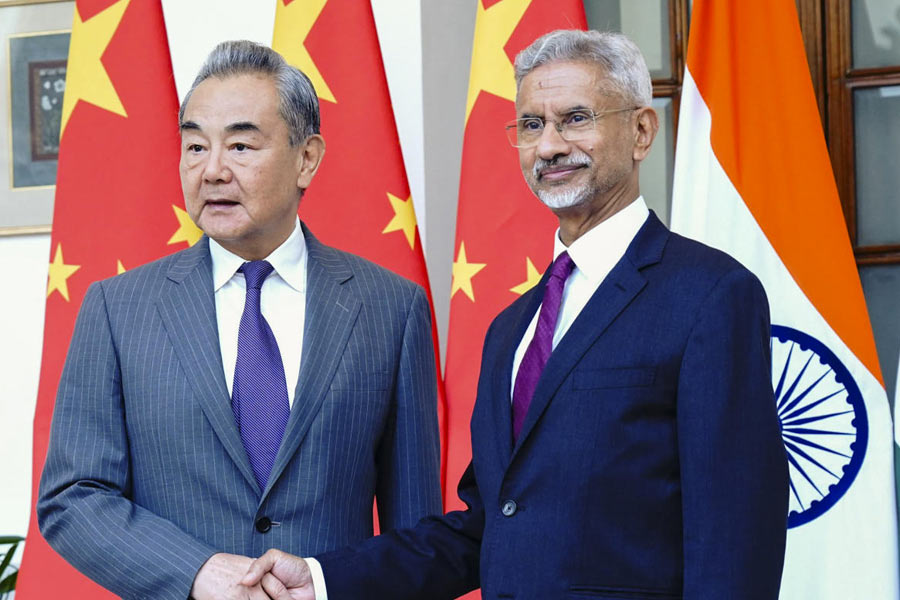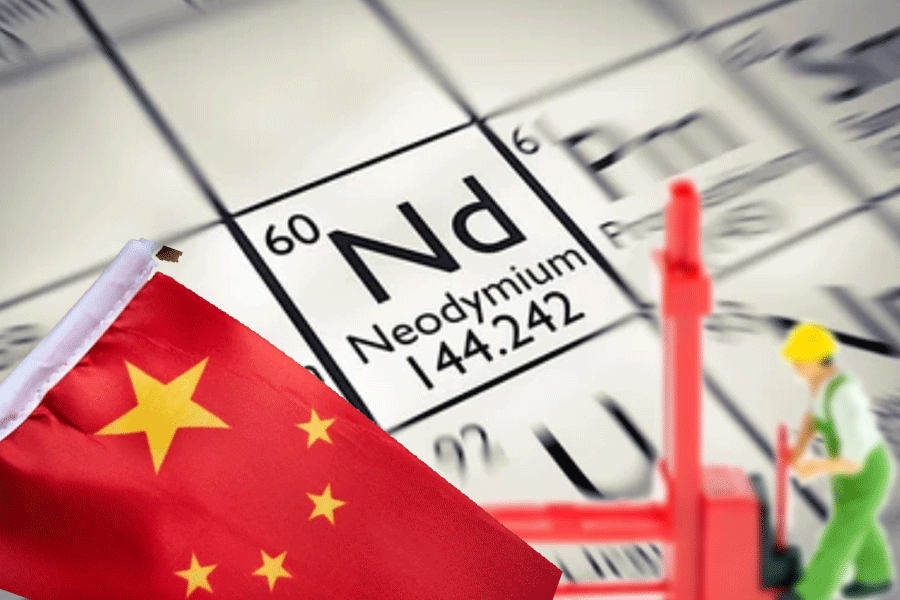Prime Minister Narendra Modi on Tuesday said that India-China relations have made “steady progress” and stressed that stable and constructive ties between the two neighbours would contribute to regional and global peace.
“Glad to meet Foreign Minister Wang Yi. Since my meeting with President Xi in Kazan last year, India-China relations have made steady progress guided by respect for each other's interests and sensitivities. I look forward to our next meeting in Tianjin on the sidelines of the SCO Summit. Stable, predictable, constructive ties between India and China will contribute significantly to regional as well as global peace and prosperity,” Modi wrote on X.
Wang Yi is in New Delhi for the 24th round of border talks with National Security Advisor Ajit Doval and also held a meeting with the Prime Minister on Tuesday, days before Modi travels to China for the Shanghai Cooperation Organisation summit.
The Ministry of External Affairs said the talks with China covered de-escalation, delimitation and broader boundary issues, and stressed that India underlined the need for utmost transparency regarding the dam project.
Doval underlined that relations were showing signs of improvement.
“There has been an upward trend. Borders have been quiet. There has been peace and tranquillity,” he told Wang at the start of the talks. “Our bilateral engagements have been more substantial. The new environment that has been created has helped us in moving ahead in the various areas that we are working on.”
Wang said, “The stable and healthy development of China-India relations is in the fundamental interests of the two countries' people,” according to a statement released by the Chinese foreign ministry.
The two sides, Wang said, “should enhance mutual trust through dialogues and expand cooperation” while seeking consensus in areas such as border control and demarcation.
An Indian source said earlier in the day that China had assured New Delhi on three critical fronts.
Wang had conveyed this to external affairs minister S. Jaishankar that Beijing was addressing India’s needs for fertilisers, rare earth magnets and tunnel-boring machines.
India has the world’s fifth-largest reserves of rare earths, estimated at 6.9 million metric tons, but lacks domestic magnet production capacity and depends heavily on imports, primarily from China.
Rare earth magnet exports to India were still down 58 per cent in June compared to January levels, according to Chinese customs data, even as overall exports to Europe and the United States picked up after Beijing cleared a backlog of applications.
China has now lifted restrictions on the export of rare earth magnets to India and assured support for critical sectors including fertilisers and infrastructure, according to media reports.
These commitments were highlighted after Wang’s meeting with Jaishankar in New Delhi on Monday evening, which both sides described as “substantive.”
On July 9, the Automotive Component Manufacturers Association of India (ACMA) urged the government to formulate a national strategy on critical materials at a time when the automobile industry was facing a potential production disruption due to a rare earth magnet shortage.
There was a growing concern among automotive industry stakeholders in India over China’s decision to restrict exports of rare earth magnets since April, mandating special export licences.
The supply of rare earths is particularly sensitive in global trade, as Beijing has used it as leverage in negotiations, including during the tariff standoff with Washington.
It was not immediately clear whether China had agreed to faster approvals of export licenses for India or granted blanket exemptions.
Wang Yi’s two-day visit is being seen as a step in repairing ties strained since the 2020 border clash, with both governments signalling willingness to pursue dialogue and cooperation in key sectors.
(With inputs from agencies)













